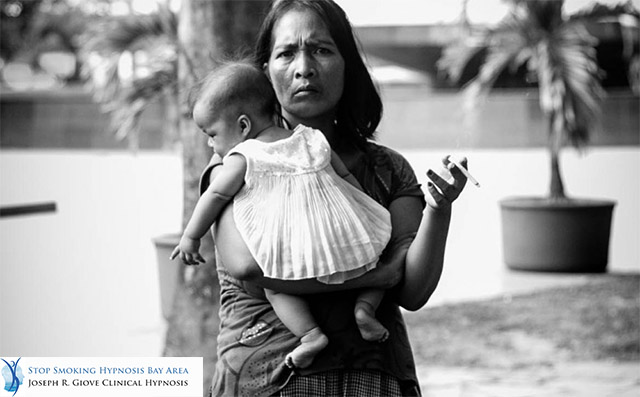
Smoking and Breastfeeding – A Harmful Combination
The effects of smoking and nicotine on adult men and women as well as children and youth are well documented. There is a laundry list of adverse effects, both physical and psychological that those who smoke are subjected to. Also well documented are the harmful effects of secondhand smoke on both smoking and nonsmoking individuals. But what about newborn infants with smoking mothers, specifically those who require breast milk?
Smoking carries with it many health risks, not only for the mother as we well know, but for the newborn baby who rely on their mothers for sustenance, ingesting all their vitamins, minerals, protein and anything else that may be present in breastmilk – such as nicotine. In this article we will explore the often overlooked risks smoking inflicts on both mother and baby while breastfeeding.
The Health Effects on Mother and Baby
There are many factors that can adversely affect a newborn baby when the mother continues to smoke while breastfeeding. Not only does it affect the baby, which we will discuss further on, but it can affect the mother’s ability to care for a newborn baby. Some of these include:
- A Lower Milk Supply – Mothers who smoke tend to have a lower milk supply than mothers who do not smoke. Having an adequate supply of milk is critical in order to ensure the feeding of a newborn baby. This is especially critical because a baby’s appetite follows its own schedule, and won’t have patience for a depleted milk source to replenish. There are also problems with milk let-down, which is the time taken to get the milk from inside the breast to the baby’s mouth when it begins to suckle, and lower levels of prolactin, which is the hormone needed for the synthesis of breast milk.
- Effects on Breast Milk and Quality of Care – There are additional risks to the decrease in breast milk quality that come along with smoking. Studies have shown that due to the aforementioned symptoms, smoking mothers tend to have to wean their babies earlier than nonsmokers, which means the baby will not get all of the nutrients from its mother it needs to fully develop.
- Nicotine Transfer – Nicotine absorbed into the mother’s body by smoking is transferred to the breast milk in twice the quantity than it would have been into the placenta, meaning it affects newborn babies more significantly than unborn babies. While breast milk can somewhat counter the effects of nicotine with the nutrients provided by milk itself, there are still levels of nicotine higher than what is safe going into the baby’s system that will cause problems – safe levels being none.
- Effects on the Baby – Smoking while breastfeeding causes nicotine to be transferred into the breast milk and can cause health problems for the baby. Babies with smoking mothers experience diarrhea, nausea, vomiting, and abdominal cramps at much higher rates than babies with nonsmoking mothers, and also develop colic far more frequently.
- Psychological Effects on the Mother – As previously noted, smoking can lower the production of milk, which can have adverse psychological effects on the mother. Postpartum depression and feelings of being overwhelmed are common in new mothers, and a lower milk supply could add more stress and feelings of inadequacy. Additionally, smoking and nicotine can affect the mother’s sleep pattern, and new mothers are often sleep deprived as it is, as they must adhere to their baby’s unforgiving schedule.
Is It Safe to Smoke While Breastfeeding?
First of all, it should be stated that smoking and ingesting nicotine in any capacity are hazardous to any individual’s health, regardless f they are breastfeeding. The health benefits of quitting smoking are enormous to both the mother and the baby. Simply not breastfeeding in favor of smoking is also not ideal for the health of a newborn.
 Quit smoking For Your Baby’s Health” width=”160″ height=”107″ />
Quit smoking For Your Baby’s Health” width=”160″ height=”107″ />
Minimizing the Health Risks
One of the larger issues related to smoking while breastfeeding is the second hand smoke, which the small child will now be exposed to through both the milk they consume as well as through the air they breathe. The damaging health effects to a baby when one or both parents smoke greatly exacerbates their chances of contracting many dangerous health conditions. While quitting smoking as soon as possible is the best option, there are also some ways to minimize the health risks to a breastfeeding baby in the meantime:
- Do not smoke immediately before or during breastfeeding. This is very dangerous to the baby’s health and also affects let-down.
- When anyone does smoke, whether it be the mother, father or another member of the household, make sure they are outside the house.
- If smoking is necessary, doing it immediately after breastfeeding allows the maximum time for the nicotine to metabolize and leave the body.
Hypnosis and Hypnotherapy
There are many problematic side effects to smoking while the mother is breastfeeding. Some affect the mother, but unfortunately most affect the baby – its development, and overall health for many years to come. There are many ways to quit smoking, but many include nicotine and other substances that will continue to seep into the mother’s breast milk, and in turn their babies. Hypnosis and Hypnotherapy have been proven to help many people quit smoking, and uses no chemicals. Hypnotherapy relies on the power of the mind to help alter behaviors, alleviate cravings and leave cigarettes behind forever.
Joseph R. Giove is a certified Clinical Hypnotist with over 25 years of experience helping mothers and mothers-to-be (as well as many other people) to quit smoking. His methods are very effective and use no additional carcinogens or chemicals that are in many other quitting devices such as the patch or E-cigarettes.
If you or someone you know wishes to quit smoking for the benefit of the prolonged health of themselves, their baby or those around them, then the Joseph R. Giove Clinic can help.
